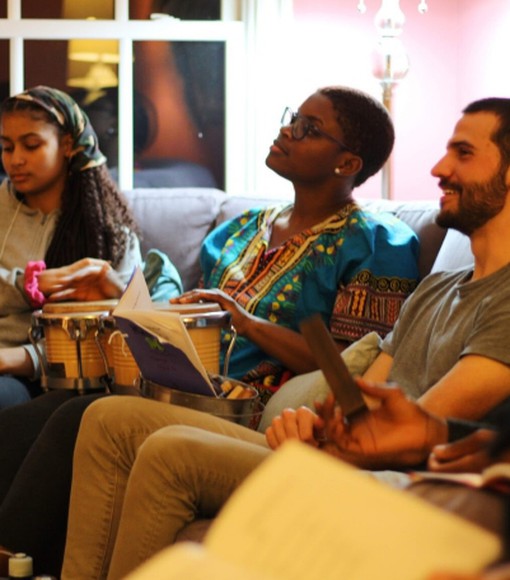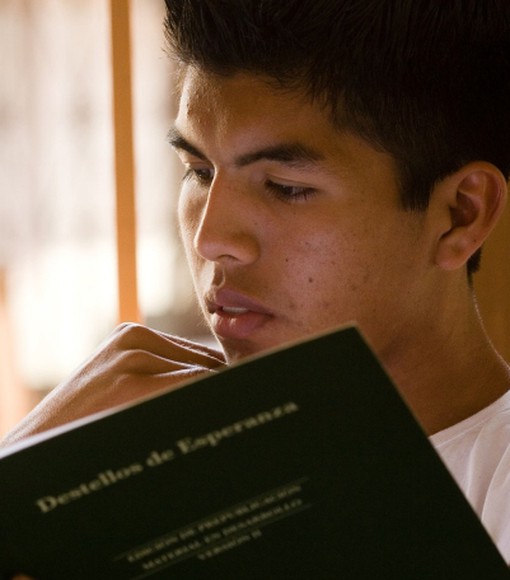Baha’is believe that God sends different prophets, or Manifestations of God, to reveal divine messages to humanity. These Manifestations include Abraham, Zoroaster, Moses, the Buddha, Krishna, Jesus Christ, Muhammad, the Bab, and the founder of the Baha’i Faith, Baha‘u’llah.
In English, Baha’u’llah means “The Glory of God,” and Baha’is believe that His coming is foretold in many of the world religions. The Baha’i writings say:
“To Israel He was neither more nor less than the incarnation of the “Everlasting Father”, the “Lord of Hosts” come down “with ten thousands of saints”; to Christendom Christ returned “in the glory of the Father”; to Shí’ah Islám the return of the Imám Ḥusayn; to Sunní Islám the descent of the “Spirit of God” (Jesus Christ); to the Zoroastrians the promised Sháh-Bahrám; to the Hindus the reincarnation of Krishna; to the Buddhists the fifth Buddha.”
Baha’is view Baha’u’llah as the latest divine messenger to found a major world religion and usher in a new age of human development. Born Mirza Husayn Ali in Tehran, Persia in 1817, Baha’u’llah was known early in his adult life as “the father of the poor” for his selfless work assisting the destitute and homeless. In 1863, he began openly teaching the Baha’i Faith, with its revolutionary messages of the oneness of humanity, the oneness of religion, the equality of men and women, the agreement of science and religion, and the establishment of a global system of governance.
Baha’u’llah suffered 40 years of exile, torture, and imprisonment — all for announcing that a new revelation had been born. Baha’u’llah called the entire world to collective action and unity, and that call, Baha’is believe, has inaugurated a new age of spirituality, harmony, and human maturation.
Unlike many religions of the past, Baha’is have the original writings of Baha’u’llah, his son and successor, Abdu’l-Baha — as well as the Guardian of the Baha’i Faith, Shoghi Effendi, and, since 1963, the Universal House of Justice, the nine-member democratically-elected global governing body of the Baha’i Faith. Baha’is rely on and revere those inspiring writings and see them as the source for humanity’s continual guidance. They have been translated into hundreds of languages, including tribal and indigenous ones, to make them available to everyone.



























